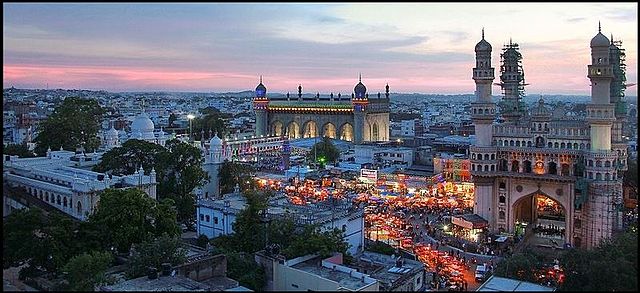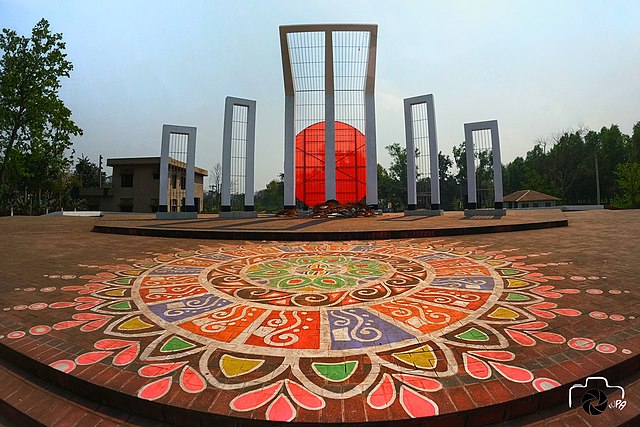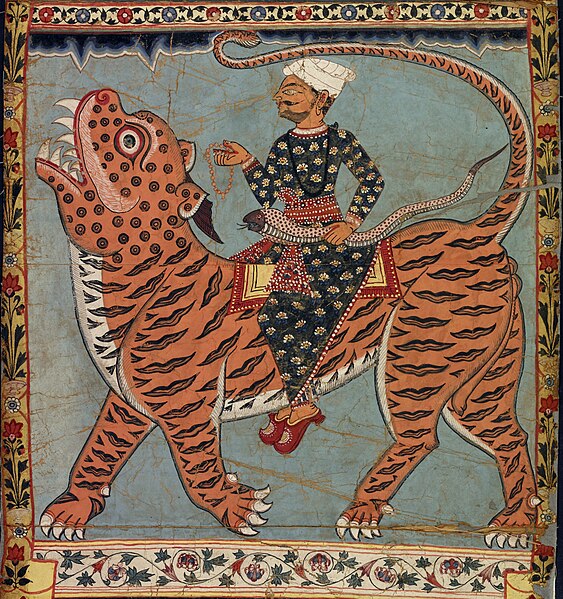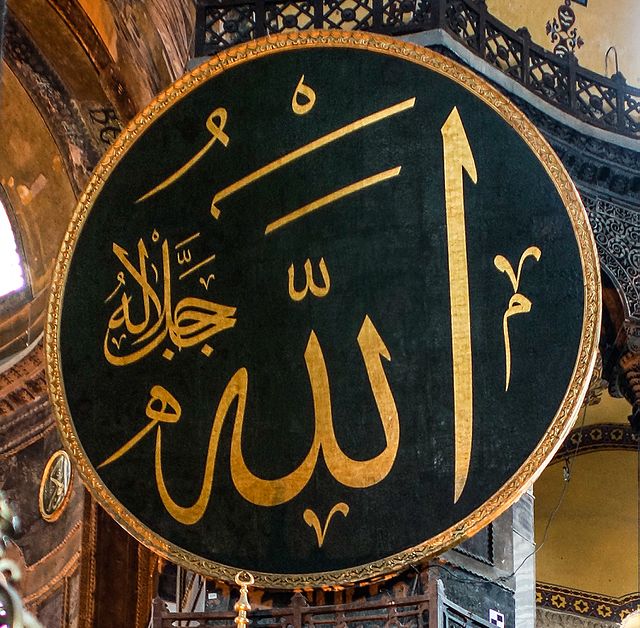Islamic culture or Muslim culture refers to the historic cultural practices that developed among the various peoples living in the Muslim world. These practices, while not always religious in nature, are generally influenced by aspects of Islam, particularly due to the religion serving as an effective conduit for the inter-mingling of people from different ethnic/national backgrounds in a way that enabled their cultures to come together on the basis of a common Muslim identity. The earliest forms of Muslim culture, from the Rashidun Caliphate to the Umayyad Caliphate and the early Abbasid Caliphate, was predominantly based on the existing cultural practices of the Arabs, the Byzantines, and the Persians. However, as the Islamic empires expanded rapidly, Muslim culture was further influenced and assimilated much from the Iranic, Caucasian, Turkic, Indian, Malay, Somali, Berber, and Indonesian cultures.
Hyderabad during Ramadan
Karbala during Laylat al-Qadr
Shahid Minar commemorates 21 February's anniversary of the day when the Bengali Muslims of Bengal fought for recognition of their Bengali language. Central Shahid Minar's front beautified with alpana, Islamic University, Bangladesh.
Patachitra of Gazi Pir, Sunderbans, Bangladesh
Islam is an Abrahamic monotheistic religion centered on the Quran and the teachings of Muhammad, the religion's founder. Adherents of Islam are called Muslims, who are estimated to number approximately 1.9 billion worldwide and are the world's second-largest religious population after Christians.
The Kaaba at Masjid al-Haram in Mecca, Saudi Arabia, the holiest Islamic site
Calligraphy showing the word Allah in Arabic in Hagia Sophia, Istanbul, Turkey
A 16th century Siyer-i Nebi image of the angel Gabriel visiting Muhammad
A Quran manuscript resting on a rehal, a book rest for the holy text








